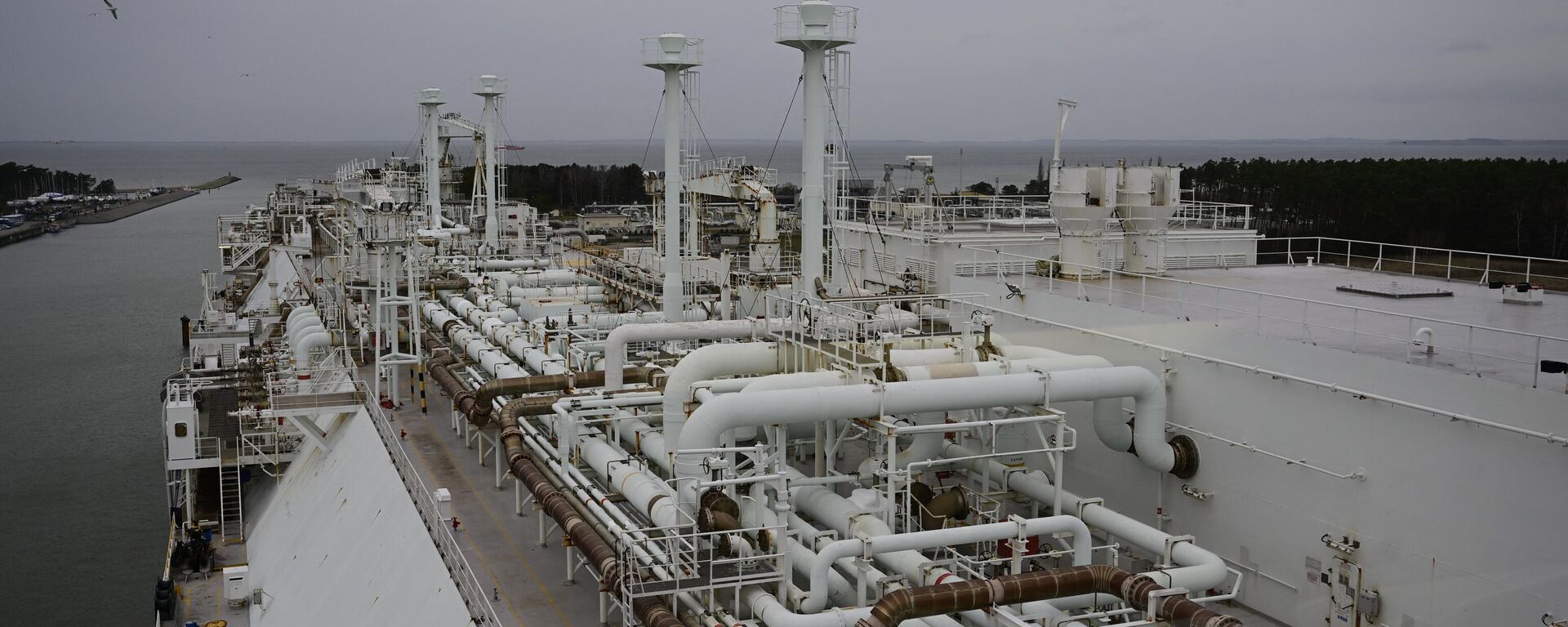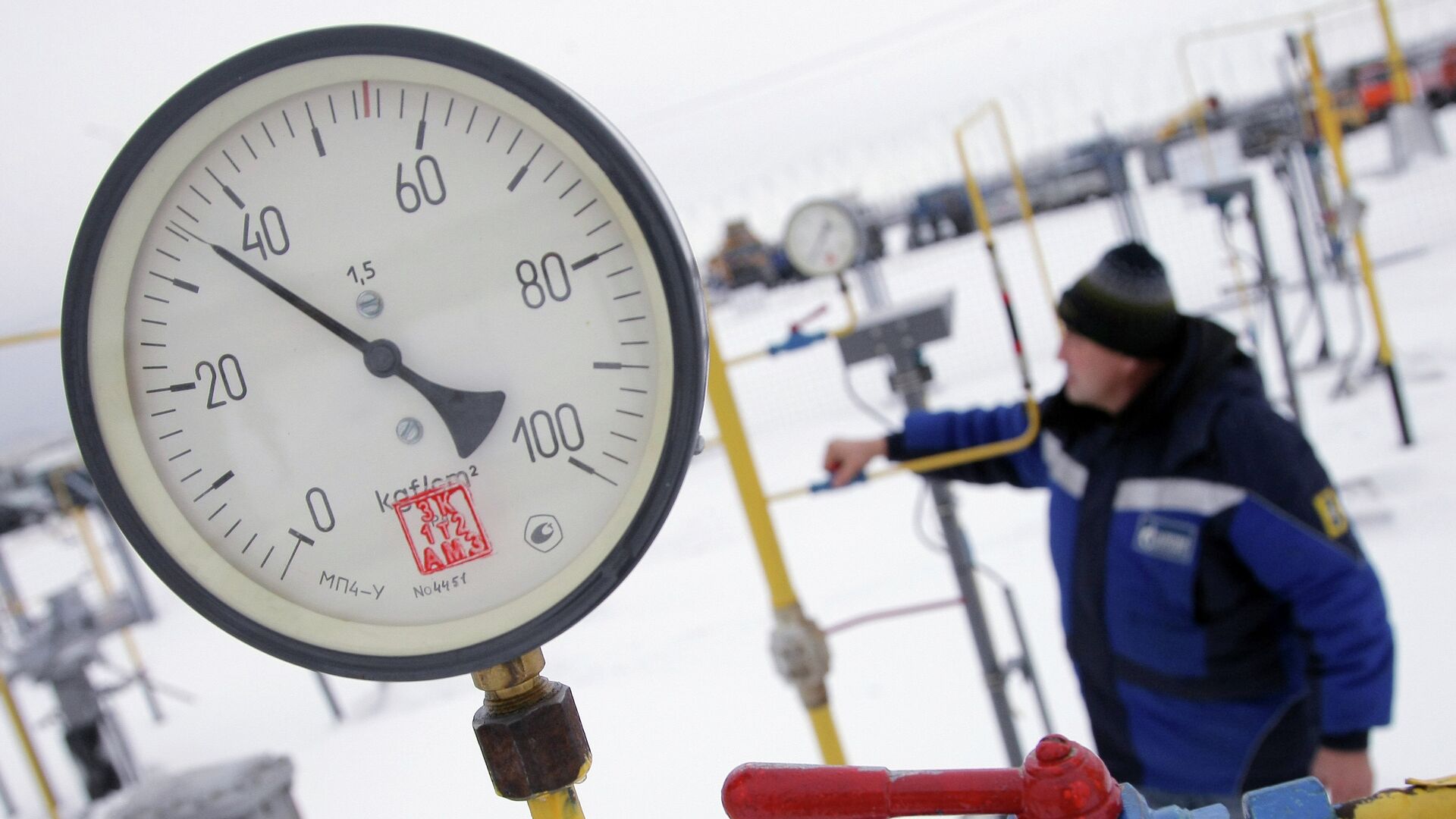https://sputnikglobe.com/20230125/turning-away-from-russian-natural-gas-would-be-unwise-says-austrian-politician-1106688028.html
Turning Away From Russian Natural Gas Would Be Unwise, Says Austrian Politician
Turning Away From Russian Natural Gas Would Be Unwise, Says Austrian Politician
Sputnik International
While many European powers sought to curb the import of Russian oil and gas over Moscow’s involvement in the conflict in Ukraine, some politicians in Europe have questioned the wisdom of this move.
2023-01-25T12:30+0000
2023-01-25T12:30+0000
2023-01-25T12:30+0000
world
austria
natural gas
import
criticism
https://cdn1.img.sputnikglobe.com/img/101583/64/1015836458_0:0:2837:1597_1920x0_80_0_0_a1edf77d22f65bee7b110c87ced85cd7.jpg
In an interview with Sputnik, Austrian politician and former presidential candidate Gerald Grosz pointed out that Austria’s economy has been oriented towards the cheap Russian natural gas for over five decades, and that switching to a different supplier would take years, not to mention a lot of taxpayer money.Grosz also argued that it makes little sense to purchase Russian gas through other countries for four times its normal price rather than buying that same gas cheaply.Previously, Austrian Chancellor Karl Nehammer claimed that the supply of Russian natural gas to his country decreased to around 20 percent of the total amount of imported gas.However, Werner Steinecker, outgoing general director of prominent Austrian energy company Energie AG, said in December that Russian natural gas comprises up to 50 percent of Austria’s gas imports.After Moscow initiated its military operation in Ukraine in February 2022, the United States and the EU imposed economic sanctions against Russia and sought to curb the imports of Russian oil and natural gas under the pretext of limiting Russia’s ability to finance its armed forces.While the US and its allies sought to limit their purchases of Russian hydrocarbons and implementing measures such as a price cap on Russian natural gas, these initiatives resulted in food, fuel and electricity prices soaring in these very countries while Moscow continues to make a significant profit through energy exports.
https://sputnikglobe.com/20230124/that-easy-germany-hopes-to-replace-russian-gas-with-lng-by-2026-1106637699.html
austria
Sputnik International
feedback@sputniknews.com
+74956456601
MIA „Rossiya Segodnya“
2023
News
en_EN
Sputnik International
feedback@sputniknews.com
+74956456601
MIA „Rossiya Segodnya“
Sputnik International
feedback@sputniknews.com
+74956456601
MIA „Rossiya Segodnya“
russian natural gas, russian natural gas exports to europe
russian natural gas, russian natural gas exports to europe
Turning Away From Russian Natural Gas Would Be Unwise, Says Austrian Politician
While many European powers sought to curb the import of Russian oil and gas over Moscow’s involvement in the conflict in Ukraine, some politicians in Europe have questioned the wisdom of this move.
In an interview with Sputnik, Austrian politician and former presidential candidate Gerald Grosz pointed out that Austria’s economy has been oriented towards the cheap Russian natural gas for over five decades, and that switching to a different supplier would take years, not to mention a lot of taxpayer money.
Grosz also argued that it makes little sense to purchase Russian gas through other countries for four times its normal price rather than buying that same gas cheaply.
“Everyone has already seen that Russian gas keeps coming to us through other countries and at a higher price,” the politician remarked.
Previously, Austrian Chancellor Karl Nehammer claimed that the supply of Russian natural gas to his country decreased to around 20 percent of the total amount of imported gas.
However, Werner Steinecker, outgoing general director of prominent Austrian energy company Energie AG, said in December that Russian natural gas comprises up to 50 percent of Austria’s gas imports.

24 January 2023, 09:11 GMT
After Moscow initiated its military operation in Ukraine in February 2022, the United States and the EU imposed economic sanctions against Russia and sought to curb the imports of Russian oil and natural gas under the pretext of limiting Russia’s ability to finance its armed forces.
While the US and its allies sought to limit their purchases of Russian hydrocarbons and implementing measures such as a price cap on Russian natural gas, these initiatives resulted in food, fuel and electricity prices soaring in these very countries while Moscow continues to make a significant profit through energy exports.



